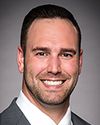Thank you, Mr. Chair. It is a pleasure for me to join you today from my family farm in Grunthal, Manitoba.
I would like to also thank the committee members for this opportunity to talk a bit about our situation.
My name is David Wiens. I'm the president of Dairy Farmers of Canada. I am joined by our vice-president, Daniel Gobeil, with whom I will be sharing some of my speaking time today.
On behalf of Canadian dairy farmers, it is a privilege to be here to share our views on Bill C-275, an act to amend the Health of Animals Act, which is basically biosecurity on farms.
Supplying Canadian families with safe, nutritious and high-quality dairy products is the paramount mission for us as dairy farmers, and we cannot accomplish that mission unless we can ensure that our cattle themselves are healthy, safe and secure.
Canadian dairy farmers adhere to a mandatory and coordinated national quality assurance framework, which we know as proAction. This framework constantly evolves to reflect best practices and includes programs with strict requirements in a number of key areas, and that of course includes animal care and biosecurity. It's a program that Canadian dairy farmers are proud of and one that the National Farm Animal Care Council recently assessed. The council found that it met and exceeded all requirements of Canada’s animal care assessment framework.
DFC worked with the Canadian Food Inspection Agency to develop the national standard for biosecurity for Canadian dairy farmers. The most critical elements of this national standard are incorporated into proAction’s biosecurity module, which requires strict measures at every Canadian dairy farm to mitigate the risk of exposure to dangerous diseases or toxic substances that could threaten animal health.
In this regard, controlling traffic and visitors is essential. Dangerous pathogens can be introduced and spread by contaminated footwear, clothing and hands, as well as vehicles, farm machinery and other equipment. This is why we have strong standards and protocols in Canada that we should actually be proud of.
Such standards are compromised when visitors from the outside do not follow the correct protocols. This is true regardless of the purpose or intent of the individuals seeking uncontrolled access to the farm. Dangerous pathogens do not respect intentions. They are opportunistic disease vectors that can devastate herds and destroy farm livelihoods.
Now I will pass this on to my colleague Mr. Gobeil for a few further comments.




